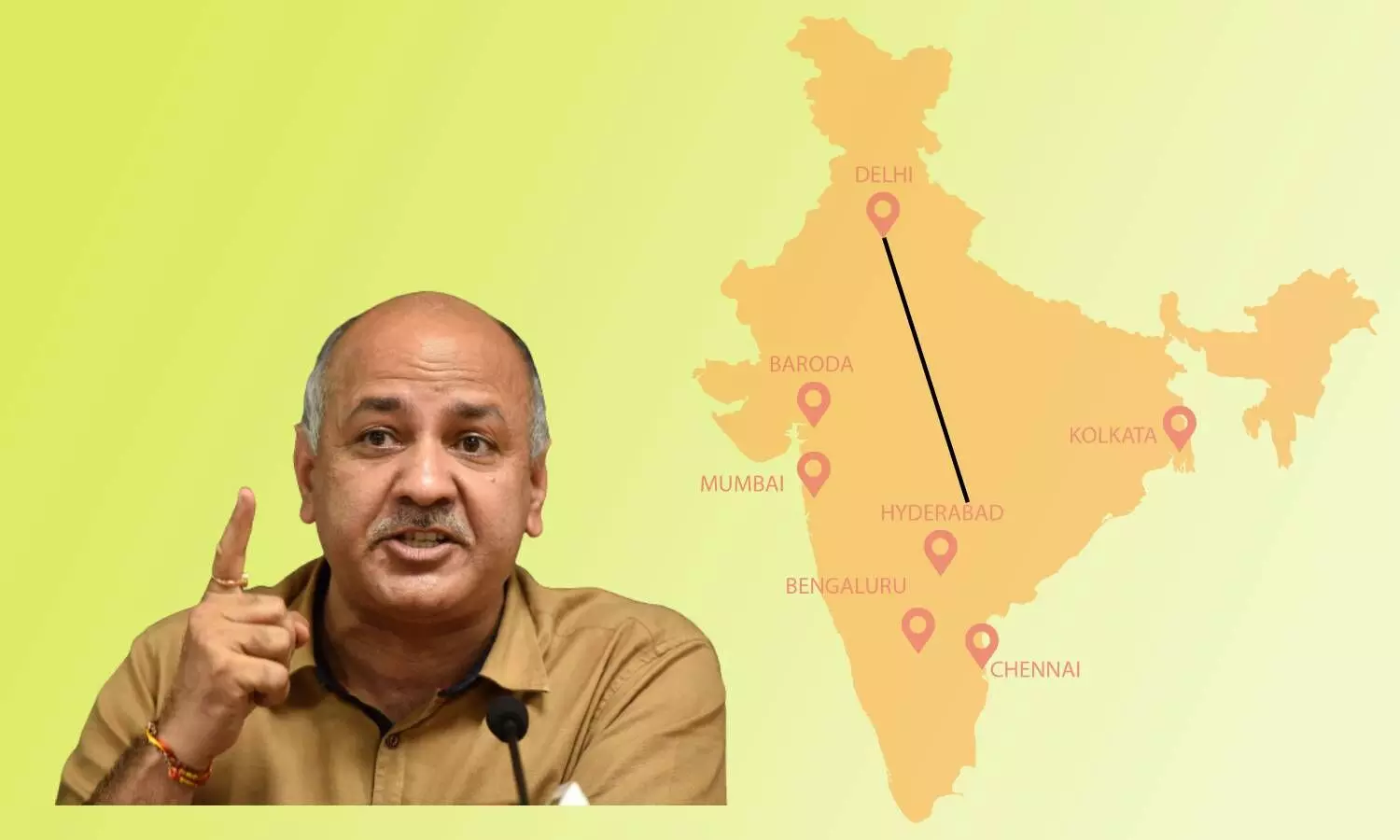How Hyderabad man Arun Ramchandra Pillai played conduit in Delhi's liquor policy irregularities
The CBI probe revealed that Arun Ramchandra Pillai, a resident of Kokapet in Hyderabad, used to collect undue pecuniary advantage (money) from Sameer Mahendru of Indo Spirit for onward transmission to accused public servant through Vijay Nair.
By Coreena Suares
Hyderabad: The Central Bureau of Investigation on 19 August booked Delhi Deputy Chief Minister Manish Sisodia, former Delhi Excise commissioner Arava Gopi Krishna of Andhra Pradesh, and Hyderabad man Arun Ramchandra Pillai for alleged liquor policy irregularities.
Searches were held at 31 locations, including in Delhi, Gurugram, Chandigarh, Mumbai, Hyderabad, Lucknow, and Bengaluru. They have led to the recovery of incriminating documents, articles, and digital records.
What led to the CBI raid?
It all began when Praveen Kumar Rai, the director of MHA, directed the CBI to inquire into the irregularities in framing and implementation of the Excise policy of the government of National Capital Territory of Delhi (GNCTD) for the year 2021-22.
The allegation against Deputy CM Manish Sisodia, the then Excise commissioner Arva Gopi Krishna, the then Excise deputy commissioner Anand Tiwari, and assistant commissioner (Excise) Pankaj Bhatnagar was that the officials were instrumental in recommending and taking decisions pertaining to Excise policy 2021-22 without the approval of the competent authority. This was done with an intention to extend undue favours to the liquor license tender, the CBI said.
The CBI in its FIR said Vijay Nair, the former CEO of Only Much Louder, an entertainment and event management firm; Manoj Rai, former employee of Pernod Ricard; Amandeep Dhal, owner of Brindco Spirits; and Sameer Mahendru, owner of Indo Spirits are actively involved in irregularities in framing and implementation of the Excise policy.
What is Hyderabad's connection to Delhi liquor policy irregularities?
The CBI received a tip off that L-1 licence holders issued credit notes (bills) to retail vendors with an intention to divert funds in order to benefit public servants involved in the irregularities. In addition, 'false entries' were made in the accounts book to keep their record straight.
Further, Amit Arora, the director of Buddy Retail Pvt. in Gurgaon, Dinesh Arora of Delhi, and Arjun Pandey are close associates of Deputy Chief Minister Manish Sisodia. The trio was involved in diverting and collecting money from liquor licensees to accused public servants. Another accused, Sameer Mahendru, MD of Indo Spirits, transferred an amount of Rs. 1 crore to the account of Radha Industries managed by Dinesh Arora.
Here comes the role of Hyderabad man. The CBI probe revealed that Arun Ramchandra Pillai, a resident of Kokapet in Hyderabad, used to collect undue pecuniary advantage (money) from Sameer Mahendru of Indo Spirit for onward transmission to accused public servant through Vijay Nair.
List of accused
1. Manish Sisodia, Deputy Chief Minister of Delhi
2.Arva Gopi Krishna, the then commissioner (Excise) of GNCTD of Delhi
3. Anand Tiwari, the then deputy commissioner (Excise), GNCTD of Delhi
4. Pankaj Bhatnagar, assistant commissioner (Excise), GNCTD of Delhi
5. Vijay Nair, former CEO of Only Much Louder, an entertainment and event management company in Mumbai
6. Manoj Rai, former employee of Pernod Ricard in Lucknow
7. Amandeep Dhal, director of Brindco Sales Pvt. Ltd, New Delhi
8. Sameer Mahendru, managing director of Indo Spirit Group, Delhi
9. Amit Arora, director of Buddy Retail Private Limited, New Delhi
10. Dinesh Arora, Delhi
11. Mahadev Liquors, Delhi
12.Sunny Marwah, authorized signatory, Mahadev Liquors, Delhi
13. Arun Ramchandra Pillai, a resident of Kokapet, Telangana
15. Arjun Pandey, National Media Center, Gurgaon
16. Other unknown public servants and private persons
The CBI has booked the 16 persons under sections 120-B and 477 A of the Indian Penal Code and Section 7 of the Prevention of Corruption Act.